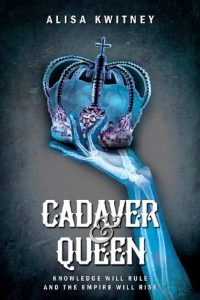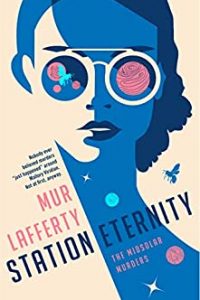Gary. K. Wolfe Reviews Or What You Will by Jo Walton
 Or What You Will, Jo Walton (Tor 978-1-250-30899-3, $26.99, 320pp, hc) July 2020.
Or What You Will, Jo Walton (Tor 978-1-250-30899-3, $26.99, 320pp, hc) July 2020.
It’s too bad that Marianne Moore’s imaginary garden with real toads has become such a fossilized cliché, because I thought of it several times while reading Jo Walton’s Or What You Will, which is an imaginary literary landscape with real books in it. Not only does Walton borrow characters and plot points from Shakespeare’s The Tempest and Twelfth Night, or What You Will (to give its full title), but she name-checks a whole shelf of classic and contemporary fantasy and SF, from C.S. Lewis and Tanith Lee to Le Guin, Bujold, Feist, Kim Stanley Robinson, Chelsea Quinn Yarbro, Diane Duane, and Sofia Samatar. For that matter, her own novel is essentially a book-within-a-book, sprinkled with fascinating historical anecdotes that add little to the plot but that quickly establish the book’s overall tone, which is essentially that of a love letter to Florence. We not only learn of the 15th-century rivalry between the architects and designers Brunelleschi and Ghiberti and the Nazi official who spared the Ponte Vecchio during the German retreat, but we even get an enthusiastic (and mouth-watering) full-scale review of the actual Teatro de Sale restaurant and dining club. It’s enough to make you want to pack up the book, get on the next plane to Florence, and use the novel as a guidebook when you get there.
As fascinating as that aspect of Or What You Will may be, it’s not nearly as fascinating as the multiple narrative conceits that Walton deploys. Her principal narrator is a kind of one-person repertory company who lives only in the mind (or ”bone cave”) of a 73-year-old fantasy novelist named Sylvia Katherine Harrison, and who has been deployed as various of her characters for decades – dragon, scholar, warrior, thief, etc. Now that she is planning an alternate-historical novel about Florence with no role for him, he’s understandably miffed, and his banter with Sylvia lends a pleasant screwball tone to some of their interactions. It also gives the narrator a chance to fill us in on Sylvia’s own background, escaping an abusive first marriage, finding and losing the love of her life, and now facing the twilight of her World Fantasy Award winning career. Both Sylvia’s own story and that of the avatar trapped inside her brain are largely frametales for the main course, which is that alternate-Florence novel she’s long been meaning to write.
That story is cast as a kind of sequel toTwelfth Night, though it borrows equally from The Tempest. In Walton’s magical version of Shakespeare’s Illyria, in which time is frozen at the beginning of the Renaissance, people die only when they want to (or are killed). Here, the wizard Prospero’s daughter Miranda from The Tempest turns out to be the mother of Orsino from Twelfth Night and a wizard in her own right, a colleague of the real 15th-century scholar Marsilio Ficino, who also showed up in Walton’s Lent last year, as well as in her Thessaly trilogy. (Never mind that The Tempest was probably written a decade after Twelfth Night as long as the characters line up; this is a fantasy historical.) Into their timeless alternate Florence, called Thalia, stumble a young couple from 1847, a visiting Englishwoman named Tish and an Italian called Dolly, a recent Oxford graduate whose family has lived in the same palazzo for centuries. But as they worry about how to get back to their own time, another crisis threatens the very survival of Thalia: an enormous, hideous earth-monster erupts through the floor of Ficino’s house, accidentally killing his apprentice and claiming that he’s there to free his son Geryon, the rightful duke. It turns out, to his guilt and embarrassment, he’s got the wrong house. Much to the astonishment of Tish and Dolly – who know the same Shakespeare plays we do – this is none other than Caliban himself. One of the main sources of suspense in Sylvia’s novel within a novel is the question of whether Orsino can negotiate with Caliban and Geryon, both Anteans who draw strength from contact with the Earth, and save Thalia from their destructive rampages.
There is obviously a great deal going on, in multiple levels, in Or What You Will, but the tales are consistently woven together by an overriding concern with stories and their value – where they come from, how they survive and evolve and are reinvented, what comforts and discomforts they offer. It’s undeniably touching when Sylvia, facing her own mortality, assures that narrator-in-her-skull that he, at least, will always survive in the books, whereas she’s not so sure about herself. Peppered throughout are what is becoming a kind of Walton trademark, sharp critical insights about fantasy. ”Death, in fantasy, is generally defanged,” she tells us, pointing out that ever since Lewis brought back Aslan and Tolkien brought back Gandalf, ”death in fantasy novels has been more and more negotiable.” These bits, or, for that matter, the bits about Sylvia’s own life, might seem marginal to readers who just want to know what chaos Caliban is going to wreak next. In fact, these asides are only one of the ways in which Or What You Will is a critical fiction, carrying on its own negotiations between differing ideas of history, biography, and imagination; between Thalia’s dream of an eternal Renaissance and the reality of progress and change. If a Renaissance never changes, she reminds us, it isn’t really a Renaissance at all.
Gary K. Wolfe is Emeritus Professor of Humanities at Roosevelt University and a reviewer for Locus magazine since 1991. His reviews have been collected in Soundings (BSFA Award 2006; Hugo nominee), Bearings (Hugo nominee 2011), and Sightings (2011), and his Evaporating Genres: Essays on Fantastic Literature (Wesleyan) received the Locus Award in 2012. Earlier books include The Known and the Unknown: The Iconography of Science Fiction (Eaton Award, 1981), Harlan Ellison: The Edge of Forever (with Ellen Weil, 2002), and David Lindsay (1982). For the Library of America, he edited American Science Fiction: Nine Classic Novels of the 1950s in 2012, with a similar set for the 1960s forthcoming. He has received the Pilgrim Award from the Science Fiction Research Association, the Distinguished Scholarship Award from the International Association for the Fantastic in the Arts, and a Special World Fantasy Award for criticism. His 24-lecture series How Great Science Fiction Works appeared from The Great Courses in 2016. He has received six Hugo nominations, two for his reviews collections and four for The Coode Street Podcast, which he has co-hosted with Jonathan Strahan for more than 300 episodes. He lives in Chicago.
This review and more like it in the June 2020 issue of Locus.
 While you are here, please take a moment to support Locus with a one-time or recurring donation. We rely on reader donations to keep the magazine and site going, and would like to keep the site paywall free, but WE NEED YOUR FINANCIAL SUPPORT to continue quality coverage of the science fiction and fantasy field.
While you are here, please take a moment to support Locus with a one-time or recurring donation. We rely on reader donations to keep the magazine and site going, and would like to keep the site paywall free, but WE NEED YOUR FINANCIAL SUPPORT to continue quality coverage of the science fiction and fantasy field.








